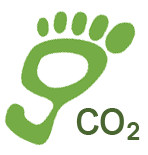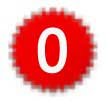Some days go by in a blur. Meetings interspersed with small chunks of desk time, interrupted by phone calls, nature breaks, and impromptu visits by interesting colleagues, an SMS from home, the background bing of email dropping into your in-box. Interruptions, as welcome as they might be, unweave the fabric of your day. The focus you had when you walked into your office slowly unravels, as your attention is simultaneously sought all around you. Over the course of this day your task completion rate dips – the trees appear and the forest recedes into a fuzzy background. Presuming you notice this, what can you do to regain your focus and perspective?
Here’s an idea…colour in a mandala.
I laughed when the art therapist briefed our group on this activity last Saturday in a workshop I attended. I have mandalas all over the house that my sons have made. They seem to be popular projects in first grade. Now I see why. A mandala is described as an “integrated structure around a unified centre”; they represent wholeness, and the integration of macro and micro perspectives. Although they originally come from Eastern religions, they are now found in many cultures and have come to represent the unity and flow of life. Most of all, creating them (even just colouring them in) can help you relax and improve concentration (no wonder they are popular with teachers of 6 year olds, and harried adults).
When you take on a mandala, your process starts with picking one that you will be happy spending an hour of your life on, out of an infinite variety of designs. Then you need to think for a while and begin to make a series of decisions about colour and pattern. You tap into yourself – how do I feel and what combination of colours will portray the perspective I have or want to have? This is a thoughtful reflective process. There is nothing random about a mandala. Whenever you make a decision, it implicates many other parts of the mandala (sound familiar?) As you make your decisions about colour and intensity, you explore the intricacies of the pattern, you gradually see the impact of these decisions on the whole, unfolding design.
After a while, as you settle into this creative process, you start to bring in other ideas and influences, you might question your earlier choices, you go down another level to see where you are going with this. Everything in your head translates into your design, unspoken; you are completely focused and uninterrupted. I was surprised, in a room of 15 people, with more coming and going, no one could distract me from completing my mandala. There is no intermediate stopping place on this circular design, once you get started, you are compelled to finish. Completion, what a nice feeling.
If you decide to try this, and take it seriously, you will feel the benefits. It lifts the mood, it refreshes you; you can think and connect while using your creativity to make something new. There is a satisfying end to the task. All that in one hour or less… If your day is spinning, take an hour, some felt tip pens and a mandala, and restore your focus and perspective. It really can be that easy.







